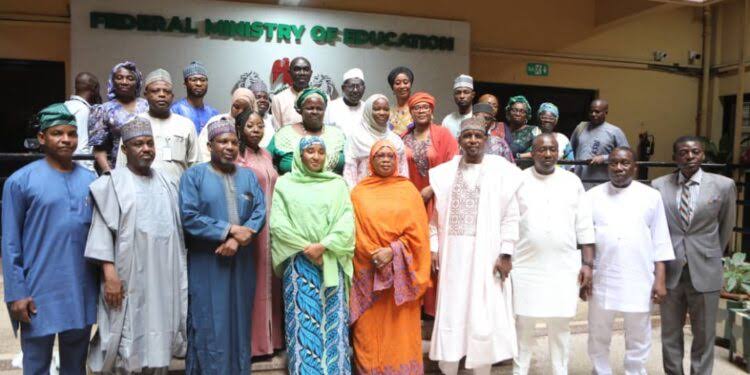The Federal Ministry of Education has officially launched LUMINAH 2030, a bold initiative designed to transform the lives of over one million underserved girls and women across Nigeria by the end of the decade. Announced via the Ministry’s official X page, the programme represents a national push toward inclusive education and long-term social empowerment.
LUMINAH 2030 is framed as a holistic empowerment campaign that links access to education with vocational training and leadership development. The Ministry explained that the programme is tailored for girls and women who have been persistently excluded from mainstream development and educational systems. According to official figures, around 60 percent of Nigeria’s estimated 15 million out-of-school children are girls, a staggering statistic that has fuelled the urgency of the initiative.
Already operational in 12 pilot states, the programme is backed by data to ensure that the first phase reaches areas where its impact will be most immediate and meaningful. It is not just about getting girls into classrooms—it is about giving them the tools to thrive socially and economically. From foundational literacy and numeracy to skill-building and leadership opportunities, the initiative is structured to break the cycle of poverty, exclusion, and gender-based marginalisation.
LUMINAH 2030 draws support from a wide network of partners, including federal and state governments, private sector actors, and development organisations. This collective effort reflects a coordinated national commitment to not only close gender gaps in education but to invest in Nigeria’s future workforce and leadership.
The programme was first introduced under the name Lumina Programme in April 2025 as part of efforts to reduce the number of out-of-school children across the country, particularly in underserved regions. It was later formally incorporated into the Ministry’s broader Quality Education and Learning Outcomes framework, signalling a deeper alignment with national education reform priorities.
Speaking about the initiative, the Minister of State for Education, Professor Suwaiba Said Ahmad, described LUMINAH 2030 as a movement to dismantle poverty, exclusion, and silence. She emphasised that the goal is to ensure no girl is left behind, a message that echoes the broader ambition of building an inclusive education system where all Nigerian children, regardless of gender or geography, can participate and succeed.
With online registration already open and full implementation set to begin soon, LUMINAH 2030 stands as one of the most ambitious education reforms in recent years. It is a statement of intent, backed by action, that seeks to reshape the narrative for millions of girls across Nigeria










